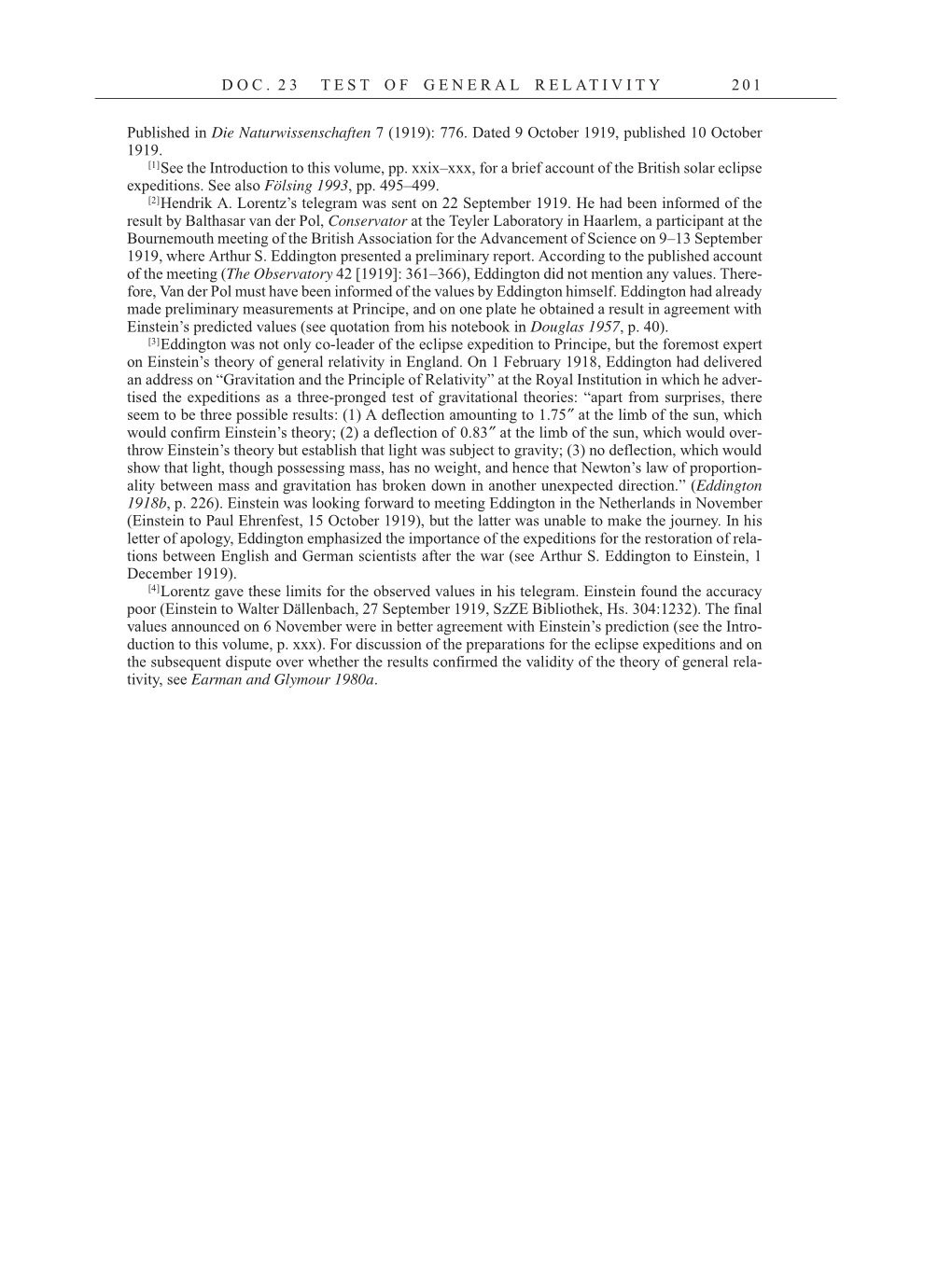D O C . 2 3 T E S T O F G E N E R A L R E L AT I V I T Y 2 0 1
Published in Die Naturwissenschaften 7 (1919): 776. Dated 9 October 1919, published 10 October
1919.
[1]See the Introduction to this volume, pp. xxix–xxx, for a brief account of the British solar eclipse
expeditions. See also Fölsing 1993, pp. 495–499.
[2]Hendrik A. Lorentz’s telegram was sent on 22 September 1919. He had been informed of the
result by Balthasar van der Pol, Conservator at the Teyler Laboratory in Haarlem, a participant at the
Bournemouth meeting of the British Association for the Advancement of Science on 9–13 September
1919, where Arthur S. Eddington presented a preliminary report. According to the published account
of the meeting (The Observatory 42 [1919]: 361–366), Eddington did not mention any values. There-
fore, Van der Pol must have been informed of the values by Eddington himself. Eddington had already
made preliminary measurements at Principe, and on one plate he obtained a result in agreement with
Einstein’s predicted values (see quotation from his notebook in Douglas 1957, p. 40).
[3]Eddington was not only co-leader of the eclipse expedition to Principe, but the foremost expert
on Einstein’s theory of general relativity in England. On 1 February 1918, Eddington had delivered
an address on “Gravitation and the Principle of Relativity” at the Royal Institution in which he adver-
tised the expeditions as a three-pronged test of gravitational theories: “apart from surprises, there
seem to be three possible results: (1) A deflection amounting to at the limb of the sun, which
would confirm Einstein’s theory; (2) a deflection of at the limb of the sun, which would over-
throw Einstein’s theory but establish that light was subject to gravity; (3) no deflection, which would
show that light, though possessing mass, has no weight, and hence that Newton’s law of proportion-
ality between mass and gravitation has broken down in another unexpected direction.” (Eddington
1918b, p. 226). Einstein was looking forward to meeting Eddington in the Netherlands in November
(Einstein to Paul Ehrenfest, 15 October 1919), but the latter was unable to make the journey. In his
letter of apology, Eddington emphasized the importance of the expeditions for the restoration of rela-
tions between English and German scientists after the war (see Arthur S. Eddington to Einstein, 1
December 1919).
[4]Lorentz gave these limits for the observed values in his telegram. Einstein found the accuracy
poor (Einstein to Walter Dällenbach, 27 September 1919, SzZE Bibliothek, Hs. 304:1232). The final
values announced on 6 November were in better agreement with Einstein’s prediction (see the Intro-
duction to this volume, p. xxx). For discussion of the preparations for the eclipse expeditions and on
the subsequent dispute over whether the results confirmed the validity of the theory of general rela-
tivity, see Earman and Glymour 1980a.
1.75″
0.83″
